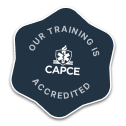
You have been accepted into a paramedic program and are excited but maybe a bit nervous. What do you do now? How will you be successful? This article will hopefully give you some tips for succeeding in paramedic school. Programs can vary in length, hours spent in class, and the number of days per week spent in class. Thus, it is important to understand the time commitment. Learning to prioritize school while maintaining a work-life balance (especially if you have a family and full-time job) can be extremely challenging. Effective time management, knowing your learning style, and not being afraid to make mistakes are crucial elements to being successful in school.
1. Effectively manage your time because you will be required to attend classroom hours, skills hours, clinicals, and an internship.
These commitments are time-consuming. If you also fit work and family in around this, you will have even less time to study. While it is possible to work full-time and do paramedic school, it can be challenging. If it is possible to work less, I recommend it. By working less, you will have more time for studying and sleeping. It is difficult to retain new information when you are sleep deprived.
2. Know your learning style
- Are you an auditory learner? It may benefit you to record lectures so that you can listen to them again later, or you may need to read chapters aloud
- Are you a visual learner? You might need to read chapters and procedure descriptions (pictures are helpful as well)
- Are you a kinesthetic learner? You may benefit from making note cards, re-writing notes, and physically doing procedures repeatedly
It is also important to use allotted breaks during the lecture portions of your program. Getting up and moving around will promote blood flow and increase your capacity to learn and retain new information. It is also important to consider how well you perform in a classroom setting. If you have a learning disability, consider what it is you need to be successful and how the school can meet your needs. If you have difficulty paying attention in a classroom setting, understand different coping mechanisms to help you. Quiet activities, like using a fidget spinner, eating food quietly, or chewing gum, may help you focus without distracting your neighbors.
Forming study groups may be another valuable tool. Some people do well in study groups by finding classmates with a compatible learning style. However, others may struggle in a group setting and prefer studying individually. Either way, understanding your learning style and the environment in which you excel will greatly benefit you throughout your program.
3. Do not be afraid to make mistakes in class
You will do many scenarios in class before you are released to your internship. You cannot be afraid to make mistakes during these scenarios. This does not mean you neglect to learn your protocols or study information presented in class. Understanding this information to the best of your ability is critical not only to your classroom performance but also to your patient care as a provider; as my instructor told me back in my EMT class, “no one should die because of the person on shift.” However, remember that we are all human and will make mistakes, especially in the classroom. In fact, this is the best place to make mistakes, as we tend to learn more from our mistakes than our successes. When running a scenario, choose a course of action and go. Your instructor wants to see how you respond under pressure, what you know, and what treatment you implement. Techniques can be perfected, and concepts can be explained, but if you are too paralyzed to act, they cannot provide direction to help you to succeed. Being a paramedic can be stressful, and the ability to function well in these conditions is critical to your success and patient survival. So make mistakes in class. Just learn from them and try not to make that same mistake twice.
4. Have some field experience either working or volunteering with an agency
There is a big difference between treating a patient in a scenario and treating a patient in the real world. Having experience with managing a patient in the field will make it easier to focus on the more complex ideas presented in class and the course of treatment you will provide to the patient. Some experience transporting patients will also help you write charts, provide radio reports, and function safely in an ambulance. You can then use that brain space to focus on things that are more difficult for you. This is by no means obligatory - you can go from EMT straight to paramedic without any field experience. However, it can make it harder once you start your internship because you are having to learn additional skills and information.
In summary, paramedic school can seem intimidating at the start. It is harder for some than others, but it is doable. It is important to be self-aware and know what works best for you. Take frequent breaks from studying to let your brain decompress so you can learn more efficiently. Use your time wisely, and do not waste time trying to learn in a way that is not effective for you. This time may be stressful, but it can also be a lot of fun. Get experience, ask others who have been through it for advice, and ask questions in class and to those you know in the field. Medicine is constantly changing, and we can never know everything.
- Dozens of courses and topics
- State-specific requirements
- We report to CAPCE in real time


